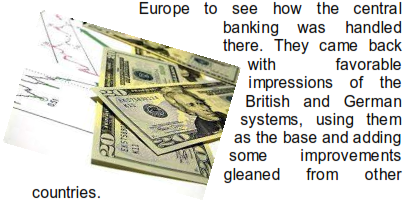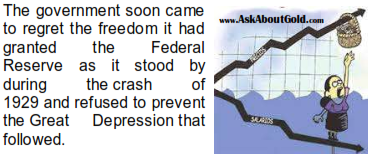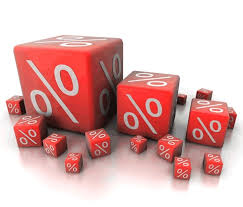Why Was the Federal Reserve Created?
The Federal Reserve is widely considered to be one of the most important financial institutions in the world. The Fed can either be your kindly grandmother or the mother-in-law from hell, and its character is usually a function of the Federal Reserve's board of governors. Its monetary policy decisions can send waves through not only the U.S. markets, but also the world.
The United States was considerably more unstable financially before the creation of the Federal Reserve. Panics, seasonal cash crunches and a high rate of bank failures made the U.S. economy a riskier place for international and domestic investors to place their capital. The lack of dependable credit stunted growth in many sectors, including agriculture and industry.
It was J.P. Morgan who forced the government into acting on the central banking plans it had been considering off and on for almost a century. During the Bank Panic of 1907, Wall Street turned to J.P. Morgan to steer the country through the crisis that was threatening to push the economy over the edge into a full crash and depression. Morgan was able to convene all the principal players at his mansion and command all their capital to flood the system, thus floating the banks that, in turn, helped to float the businesses until the panic passed. The fact that the government owed its economic survival to a private banker forced the necessary legislation to create a central bank and the Federal Reserve.
In the years between 1907 and 1913, the top bankers and government officials in the U.S. formed the National Monetary Commission and travelled to

The Federal Reserve was given power over the money supply and, by extension, the economy. Although many forces within the public and government were calling for a central bank that printed money on demand, President Wilson was swayed by Wall Street arguments against a system that would cause rampant inflation. So the government created the Federal Reserve, yet it was by no means under government control.

Even now, it is hotly debated whether the Fed could have stopped the depression, yet there is little doubt that it could have done more to soften and shorten it by providing lower interest rates to allow farmers to keep planting and businesses to keep producing. The high-interest rates may even have been responsible for the unplanted fields that turned into dust bowls. By restricting the money supply at a bad time, the Fed starved out many individuals and businesses that might otherwise have survived.
It was World War II, not the Federal Reserve, that lifted the economy out of the depression. The war benefited the Federal Reserve as well, by expanding its power and the amount of capital it was called on, to control for the Allies. After the war, the Fed was able to erase some of the bad memories from the depression by keeping interest rates low as the U.S. economy went on a bull run that was virtually uninterrupted until the '60s.
Stagflation and inflation hit the U.S. in the '70s, slapping the economy across the face, yet hurting the public far more than business. The Nixon administration ended the nation's on and off again affair with the gold standard, making the Fed that much more important in controlling the value of the U.S. dollar. The big question for the Fed was whether the nation was better off with inflation or unemployment.
By controlling interest rates, the Fed can make corporate credit easy to obtain, thus encouraging businesses to expand and create jobs. Unfortunately, this increases inflation as well. On the flip side, the Fed can slow inflation by raising interest rates and slowing down the economy, causing unemployment. The history of the Fed is simply each chairman's answer to this central question.
Criticisms of the Federal Reserve continue to this day. Boiled down, these arguments center on the image people have of the caretaker of the economy. You can either have a Fed that feeds the economy with ideal interest rates leading to low unemployment - possibly leading to future problems - or you can have a Fed that offers little help, ultimately forcing the economy to learn to help itself. The ideal Fed would be willing to do both. Although there have been calls for the elimination of the Federal Reserve as the U.S. economy matures, the value of the US dollar will very likely become virtually worthless before another economic system replaces the Fed.







